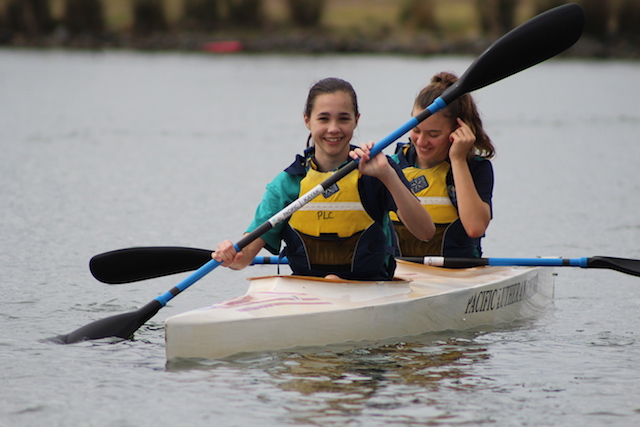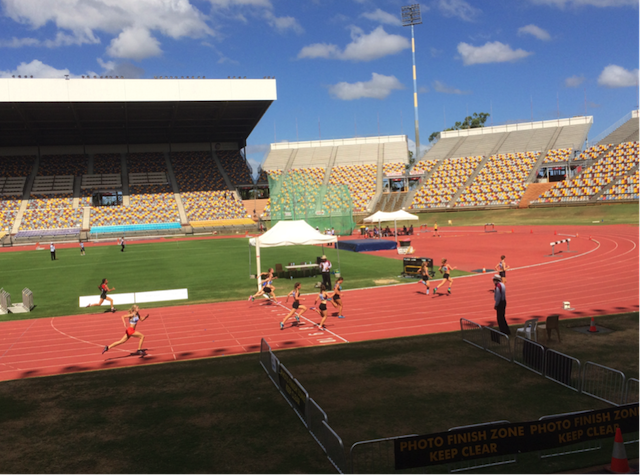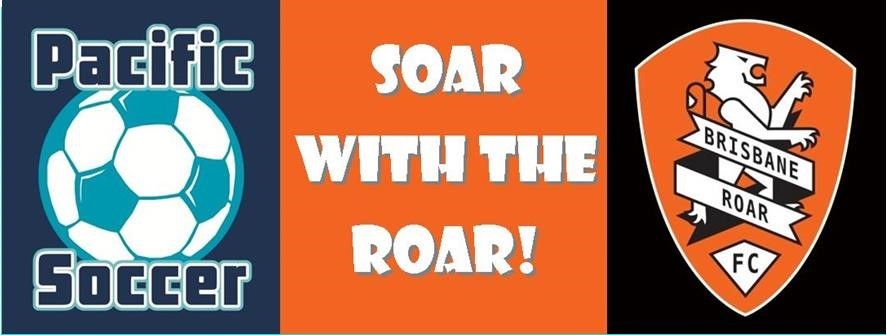1. Rationale
Pacific Lutheran College (the College) realises that life in the 21st century requires adapting to changing methods of communication and has policies for appropriate use of Social Media by staff and students. As part of the College community, parents also have a responsibility to engage appropriately with Social Media that is linked to the College. To this end, the College has developed the following guidelines to provide direction for parents when participating in Social Media activities. This includes classroom blogs, the Pacific Lutheran College Facebook page, Facebook groups, emails or any other Social Media platform/s used by parents in connection with the College either directly, or indirectly in circumstances where the College, a parent, staff member and/or student of Pacific Lutheran College is identifiable.
The College encourages parents to set and maintain high ethical standards in their use of social networking. Your posts and comments should help build and support the College community and your online behaviour should reflect the same standards of honesty, respect, and consideration that you use face-to-face and be in accordance with the Christian ethos of the College. Your behaviour online should demonstrate good digital citizenship and set an example for your children.
2. Objectives
The purpose of this policy is to:
- Encourage parents to use social networking sites in a beneficial and positive way;
- Safeguard pupils, staff and anyone associated with the College from the negative effects of social networking sites;
- Safeguard the reputation of the College from unwarranted abuse on social networking sites; and
- Clarify what the College considers to be appropriate and inappropriate use of social networking sites by parents.
3. Definitions
Social media refers to the collective of online communications channels dedicated to community-based input, interaction, content sharing and collaboration. It comprises accessible tools that enable anyone to publish or access information in an online environment. Social Media may include (although is not limited to):
- Social networking sites (e.g. Facebook, LinkedIn, etc.);
- Video and photo sharing websites (e.g. Instagram, YouTube etc.);
- Blogs, including corporate blogs and personal blogs;
- Blogs hosted by media outlets (e.g. ‘comments’ or ‘your say’ feature on sunshinecoastdaily.com.au);
- Micro-blogging (e.g. Twitter);
- Wikis and online collaborations (e.g. Wikipedia);
- Forums, discussion boards and groups (e.g. Google groups etc.);
- Vod and podcasting;
- Online multi-playing gaming platforms (e.g. World of Warcraft, Minecraft etc.);
- Electronic messaging (including email and SMS); and
- Geo-spatial tagging (Foursquare).
4. Guidelines
Social networking sites have the potential to enhance the learning and achievement of students and enable parents to access information about the College and provide feedback efficiently and easily. In addition, the College recognises that many parents and other family members will have personal social networking accounts, which they might use to discuss/share views about College issues with friends and acquaintances.
The College considers the following examples to be inappropriate uses of social networking sites (this list is non-exhaustive and is intended to provide examples only):
- Making allegations or complaints about staff or students at the College;
- Making defamatory statements about the College and/or its staff; and
- Posting negative or offensive comments about specific pupils/staff at the College.
Parents should adhere to the following guidelines at all times:
4.1 You must adhere to the Terms of Use of the relevant Social Media platform/website, as well as copyright, privacy, defamation, contempt of court, discrimination, harassment, other applicable laws and College policies;
4.2 You must ensure that you do not use or disclose any confidential information, post or respond to material that is offensive, obscene, defamatory, threatening, harassing, bullying, discriminatory, hateful, racist, sexist, infringes copyright, constitutes a contempt of court, breaches a Court suppression order, or is otherwise unlawful;
4.3 Child protection protocols must always be observed;
4.4 Under no circumstances should disrespectful or offensive comments be made about students, parents, staff or the College in general. Parents are requested not to comment on or forward unsupported information, e.g. rumours concerning the College, or comment or post material that might otherwise cause damage to the College’s reputation or bring it into disrepute;
4.5 Be mindful that, by posting your comments and having online conversations on Social Media sites you are broadcasting to the world. Even with the strictest privacy settings be aware that comments expressed via social networking pages under the impression of a ‘private conversation’ may still end up being shared into a more public domain, even with privacy settings on maximum;
4.6 The College’s anti-bullying and harassment policies apply to activities which are both online and in the physical workplace;
4.7 Before posting photographs and/or videos, permission should be sought from the subject. This is especially the case where photographs and/or videos include parents of students and/or staff members of the College. No photographs of students of the College (with the exception of a parent/s own children and where approved by the relevant parent/s from time to time) are to be posted;
4.8 Keep in mind that College staff members are not required or obligated to make/accept invitations to/from parents to join Social Media or social networking sites, and parents should respect each individual staff member’s personal preferences concerning their social networks. Likewise, parents are not required/should not feel obliged to accept a Social Media or social networking invitation from another College parent/s or from a staff member/s;
4.9 Parents should never discuss sensitive College matters with staff or other parents using Facebook, blogs and other Social Media outlets. As noted above, when posting, even on the strictest privacy settings, parents should act on the assumption that all postings are in the public domain;
4.10 If you come across positive or negative remarks about the College and/or its operations online that you believe are important, you may pass those posts to the Principal who will consider such comments on a case-by-case basis.
5. Grievance Procedures
Although social networking sites may appear to be the quickest and easiest way to express frustrations or concerns about the College (and those associated with it), it is inappropriate to do so. Instead, parents should refer to the College’s Grievance Policy, which outlines the best course of action to take when issues or concerns arise.
6. Compliance / Breach of this Policy
The College aims to deal with concerns raised by parents in a professional and appropriate manner and understands that parents may not always realise when they have used social networking sites inappropriately. Therefore, as a first step, the College will discuss the matter directly with the parent to try and resolve the issue and to ask that the relevant information be removed from the social networking site in question.
Depending on the circumstances, non-compliance with this policy may constitute a breach of sexual harassment, child protection or criminal laws, discrimination or some other contravention of the law. It is important to note that reports of cyber bullying and other technology abuses may result in a notification to the Police or other relevant authorities where the College is legally obliged to do so.
A breach of this policy may also involve a breach of other College policies such as the Enrolment Policy, Anti-Harassment Policy, Child Protection Policy and Privacy Policy and be considered as an infringement on the College’s Culture of Respect. In serious cases, failure to comply with the policy by a parent may put at risk the continuation of their child’s enrolment at the College (i.e. in serious cases, termination of the enrolment contractual agreement by the College may result).
7. Review Date
This policy and its procedures are to be reviewed on a biennial basis as recorded in the Policy and Procedures Register. This policy was adopted by College Council on 10th May 2016.

 This week at our chapel services, students and teachers were encouraged to participate in the ‘imposition of the ashes’. This term refers to a traditional Christian practice carried out in some churches on Ash Wednesday, which is the first day of Lent. Ash Wednesday is always 40 days before Easter. In the ‘imposition of the ashes’ people are invited to have ash placed on their foreheads in the shape of the cross with a Pastor or leader saying; “Remember you are dust, and to dust you will return”. The words are taken from the opening chapters of the Bible, where God speaks to Adam after he has sinned. Adam is told of the consequences of his actions: expulsion from the Garden of Eden and his eventual death. God made Adam from the dust of the ground and now he tells him, that with his death, his body will return to the dust of the ground.
This week at our chapel services, students and teachers were encouraged to participate in the ‘imposition of the ashes’. This term refers to a traditional Christian practice carried out in some churches on Ash Wednesday, which is the first day of Lent. Ash Wednesday is always 40 days before Easter. In the ‘imposition of the ashes’ people are invited to have ash placed on their foreheads in the shape of the cross with a Pastor or leader saying; “Remember you are dust, and to dust you will return”. The words are taken from the opening chapters of the Bible, where God speaks to Adam after he has sinned. Adam is told of the consequences of his actions: expulsion from the Garden of Eden and his eventual death. God made Adam from the dust of the ground and now he tells him, that with his death, his body will return to the dust of the ground. Barn Dance – Friday 10th March
Barn Dance – Friday 10th March



 Year 8 student, Storm Sawyer, competed at the Club State Athletics Carnival on the weekend. It was the first time she had participated in an individual state carnival and she performed very well. Storm made it to the finals and came fourth in the 100m race and sixth in the 200m race. Well done, Storm!
Year 8 student, Storm Sawyer, competed at the Club State Athletics Carnival on the weekend. It was the first time she had participated in an individual state carnival and she performed very well. Storm made it to the finals and came fourth in the 100m race and sixth in the 200m race. Well done, Storm! Start of 2017 Season
Start of 2017 Season A reminder to players who have not collected their hire uniforms, they are available from the Pacific uniform shop. If you could try and collect them this week, it would be appreciated. A big thank you to Mrs Peta King for her assistance with the collection and issuing of uniforms.
A reminder to players who have not collected their hire uniforms, they are available from the Pacific uniform shop. If you could try and collect them this week, it would be appreciated. A big thank you to Mrs Peta King for her assistance with the collection and issuing of uniforms.